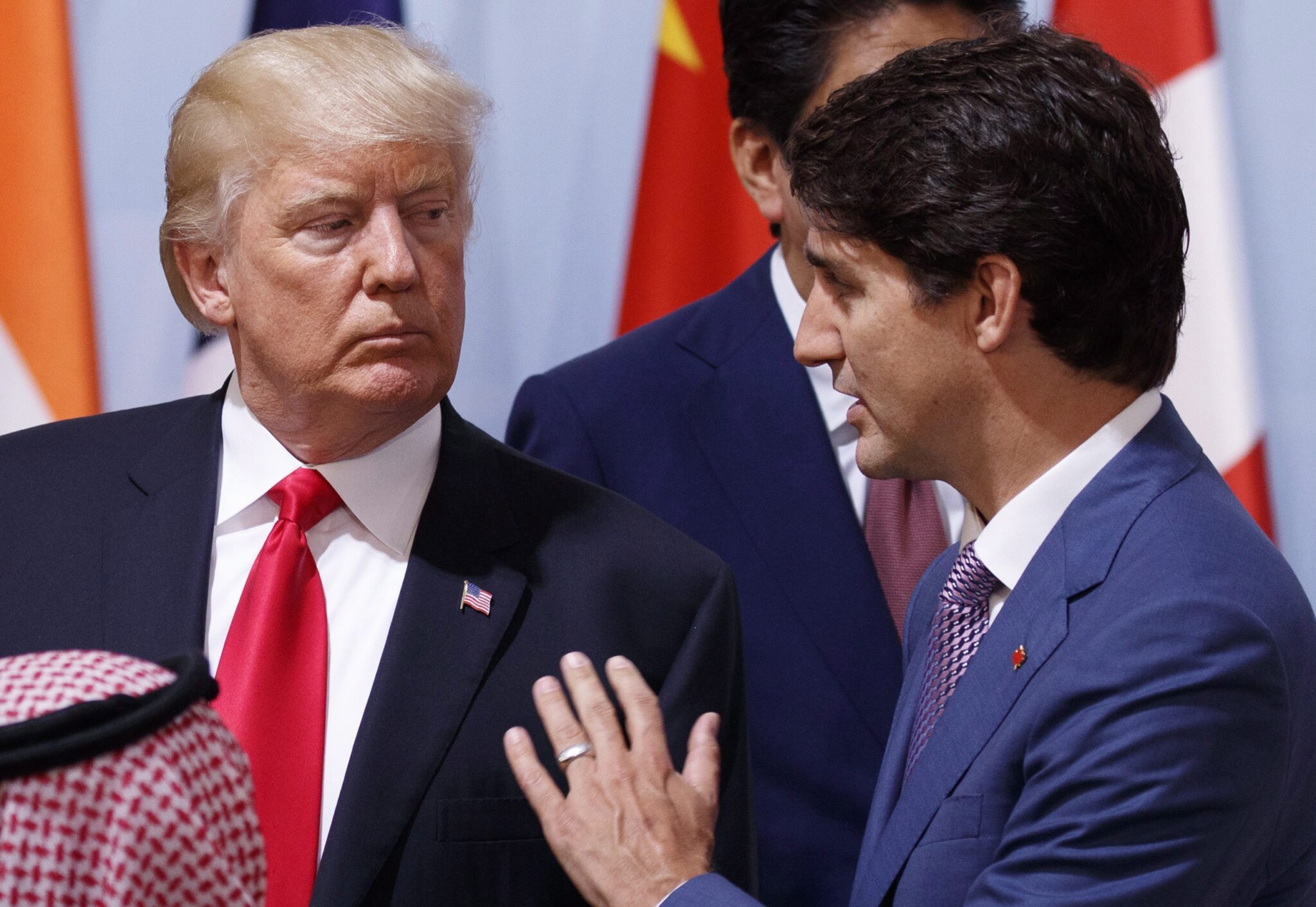This week, leading author and journalist David Frum spoke with The Hub’s editor-at-large Sean Speer about Trump’s 25 percent tariff threat, what’s really behind the president-elect’s move, how Canada should respond, and the importance of continuing to pursue free trade in the face of another Trump presidency.
Here are three key takeaways from their discussion.
1. Trump’s tariffs are ideological protectionism
David Frum explains that Trump’s tariff threats are not simply a negotiation tactic but reflect his long-standing zero-sum view of trade, where gains for one country inherently mean losses for another. Trump’s dislike of international trade, rooted in his predatory business mindset, sees trade relationships as opportunities to dominate rather than collaborate. The proposed 25 percent tariffs on Canadian imports are part of the President-elect’s broader ideological opposition to free trade agreements like the United States-Mexico-Canada Agreement (USMCA), which he perceives as enabling the redistribution of American production, rather than protecting it.
Frum warns that Trump’s protectionist stance has deep ideological underpinnings, making it unlikely that traditional concessions from Canada will alleviate these threats. Canadian policymakers must prepare for tariffs as an ideological end in themselves, rather than as leverage in a broader trade negotiation. This shift signals a fundamental departure from previous U.S. administrations’ approaches to international trade. It challenges Canada to rethink its assumptions about how to engage with the U.S.
2. Canada must become closer friends with Mexico
Frum argues that Canada must align with Mexico to counter Trump’s divide-and-conquer approach to North American trade relations. Historically, Canadians have been hesitant to include Mexico in trade agreements like NAFTA, due to economic and regulatory disparities between the two nations. However, Frum now sees collaboration with Mexico as essential for preserving free trade on the continent.
Frum underscores that a unified Canada-Mexico stance could strengthen collective bargaining against U.S. protectionism, preserving trade relationships and resisting efforts to fragment North America into separate spheres of influence. However, Frum acknowledges the challenges of working with the current Mexican administration, which he calls “authoritarian” and “statist.” He views the partnership as a necessary compromise to prevent Trump from isolating Canada or dismantling USMCA. By linking its fate to Mexico’s, Canada can resist the Trump administration’s efforts to erect barriers and undermine continental commerce. Frum also highlights the importance of leveraging the U.S. Congress’ narrow Republican majority and internal divisions to delay or weaken Trump’s trade agenda, buying time for a potential shift in U.S. leadership.
3. Do not give up on free trade
Frum emphasizes the philosophical stakes of Trump’s tariffs, saying that defending and attaining a “free trade ideal” remains important and critical for global peace.
He says free trade marked a departure from humanity’s historical tendency to seize resources by force. The post-war global order, built on cooperation and mutual benefit, led to unprecedented economic growth and reduced conflict. But Trump’s policies, Frum insists, represent a regression to a “club them and take it” mindset, threatening to unravel decades of progress. Frum critiques MAGA politics as reactionary, prioritizing domestic production to restore traditional economic and gender dynamics, while neglecting international leadership and collective security.
He views the president-elect’s moves as forcing Canada to “choose its priorities” and advises that our policymakers should still strive for free trade, even though they face significant political challenges. Doing so will ensure Canada’s economic security in a world increasingly defined by raw power and protectionism.
ChatGPT assisted in the creation of this article.







